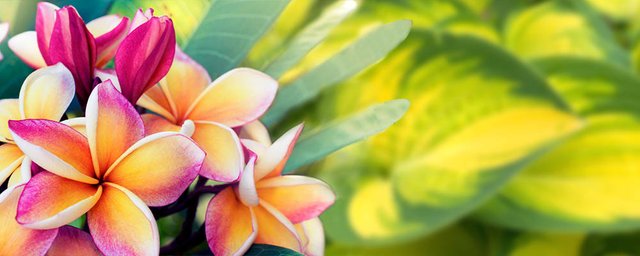Frangipani

These flowers easily available in India represent intense love and bond between two people. Exotic and sweet smelling they’re known for their pure white color. Although, they look delicate but they’re quite tough in nature; they can withstand the heat and even drought.
Plumeria (/pluːˈmɛriə/) is a genus of flowering plants in the family Apocynaceae. Most species are deciduous shrubs or small trees. The species variously are endemic to Mexico, Central America and the Caribbean, and as far south as Brazil and north as Florida, but are grown as cosmopolitan ornamentals in warm regions. Common names for plants in the genus vary widely according to region, variety, and whim, but frangipani or variations on that theme are the most common. Plumeria is also used as a common name, especially in horticultural circles.
Plumeria flowers are most fragrant at night in order to lure sphinx moths to pollinate them. The flowers yield no nectar, however, and simply trick their pollinators. The moths inadvertently pollinate them by transferring pollen from flower to flower in their fruitless search for nectar. Insects or human pollination can help create new varieties of plumeria. Plumeria trees from cross pollinated seeds may show characteristics of the mother tree or their flowers might just have a totally new look.[citation needed]
Plumeria species may be propagated easily by cutting leafless stem tips in spring. Cuttings are allowed to dry at the base before planting in well-drained soil. Cuttings are particularly susceptible to rot in moist soil. One optional method to root cuttings is applying rooting hormone to the clean fresh-cut end to enable callusing. Plumeria cuttings could also be propagated by grafting a cutting to an already rooted system. The Plumeria Society of America lists 368 registered cultivars of Plumeria as of 2009.